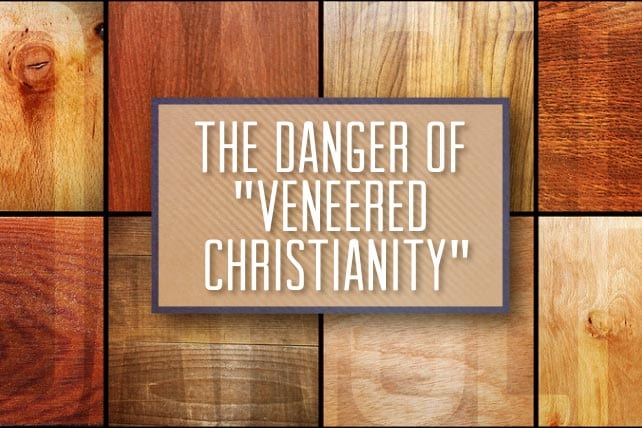The plastic, cheaply fabricated, celebrity-driven style of Christianity that has come to characterize a variety of churches in the West will never be able to effectively offer a healing response to the pain we carry within us and see around us.
- When we travel through the normalcy of everyday life;
- When we consciously integrate our lives with the person next door;
- When we allow ourselves the space to feel the depth of our own pain and loss, combined with the uncertainties we all experience;
Then and only then will we be in a position to effectively engage our world with an authentic, down-to-earth, real-life ministry of healing and restoration.
Then and only then will we begin to understand that in order to offer healing to the brokenness we all live with, we must deconstruct our plastic, veneer church personas we’ve been so careful to construct, personas that, rather than further our ministry efforts, have only showcased our failed attempts to connect with a culture enamored with deep sadness and loss.
If we truly desire to connect with the world on our doorstep, we must allow our collective experience of sadness to be our point of contact. Sadness, loss and pain is our universal point of connection with one another and it will be this connection that will enable the church to embrace its own painful realities, while enabling it to offer grace and healing to our neighbors.
Honest identification with pain, rather than a plastic, inauthentic spirituality that cannot relate to pain, will help the church to offer healing to those on the inside while extending a hand to those on the outside.
Learning to Embrace Our Pain
The Western church is largely unapproachable.
Perhaps without even realizing it, we’ve attempted to isolate ourselves from the difficult realities of life by acting like they don’t really exist. And, as a result, have ended up presenting the public with a seemingly painless version of Christianity that none can relate to.
The church hasn’t been honest with itself.
Our reluctance to embrace our own pain has rendered us incapable of effectively ministering to those on the inside, as well as those on the outside.
Let’s face it—we all carry around varying degrees of sadness and pain. And until we can give ourselves the space to feel that pain, we will never be capable of identifying with the pain around us. Lacking the ability to sympathize, we will never be able to offer the healing so many of us are looking for.
Veneered Christianity
Our veneered approach to Christian ministry has created the false impression that we have it all together. Pastors, like standoffish celebrities who have come to prefer the lights of the stage rather than the darkness of the gutters, perpetuate this attitude.
We talk a lot about attending to sickness and pain, but as Eugene Cho argues in his book Overrated, I wonder if we are more in love with the idea of attending to sickness and pain than actually attending to it? I wonder if we are more in love with the idea of justice than actually engaging in justice work?
I’m becoming increasingly convinced that a celebrity mindset, combined with a love of the stage and performance, has not only disabled us from actually being able to minister to people, but has also made people feel like they can’t approach us because of the appearance of perfection we have so often communicated.
We’ve created a plastic, veneered approach to ministry that has disabled our ability to offer real help to a sick world.
If we want to offer healing, we must first open ourselves up to be healed. And, in order to be healed, we must openly admit the depth of our own pain. A pain that many of us have been conditioned to either ignore or suppress by a church that has for far too long presented itself as having it all together.












